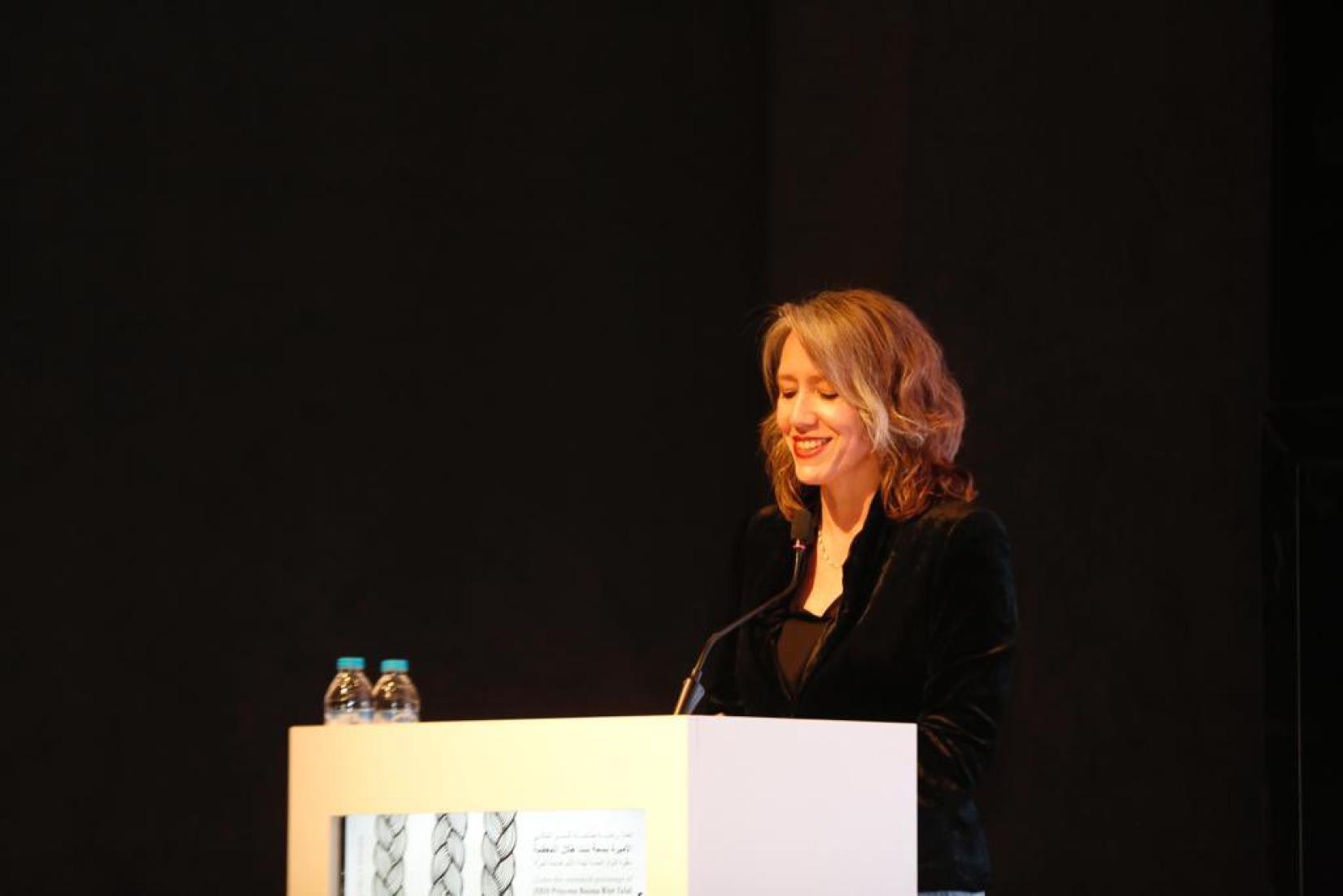UN Resident Coordinator in Jordan, Ms. Sheri Ritsema-Anderson's remarks: Opening Ceremony of 11th Women’s Film Remarks
Excellencies,
Distinguished Guests,
Dear Partners, Colleagues, and Friends,

It is a sincere pleasure to be here this evening to launch the 11th edition of the Women’s Film Week, an annual event organized in celebration of International Women’s Day. Today’s launch of the 11th edition of Women’s Film Week in Jordan has special meaning for me … it is my first public engagement since I took up my role as the Resident Coordinator of the United Nations in Jordan a few weeks ago. It is a true honor to have this engagement be on two issues of great importance to me: women’s equality and promotion of culture and the arts.
Film is a continuation of the ancient practice of storytelling, updated through modern technologies. As modern day storytelling, films entertain and engage us but they also educate us and raise our awareness. The films on display this week as part of the 11th Women’s Film Week in Jordan will teach us and challenge us on issues around gender and social justice.
They will introduce their audiences to new perspectives, triggering important conversations and inspiring actions. These films amplify the voices of women and girls from different parts of the world and will spur us ever further forward in our collective human journey towards a more inclusive, just, equitable society, free from violence.
Let us consider for a moment why events such as International Women’s Days and Women’s Film Week are necessary.
Gender equality is not only a fundamental human right, but a necessary foundation for a peaceful, prosperous and sustainable world. Although there has been progress over the last decades, the world is not on track to achieve gender equality by 2030. Women’s health services are poorly funded, violence against women remains endemic, and women still trail men in securing the decision-making positions they deserve. The impact of the COVID-19 pandemic has made the situation even bleaker.
In the face of these challenges, on International Women’s Day, the world stops to celebrate women's achievement. Raise awareness about discrimination. Take action to drive gender parity.
This year, the theme for the International Women's Day focuses on closing gender gaps in science, technology, and innovation.
Did you know that globally, men are 21 percent more likely to be online than women. In low-income countries, this increases to over 50 percent more likely.
In the tech industry, men outnumber women two to one. In Artificial Intelligence, it’s five to one.
Women struggle to access finance as founders of startup businesses.
Female researchers tend to have shorter, less well-paid careers, have less recognition of their work, receive smaller research grants. For example, did you know that the number of men invited to speak on scientific panels at conferences is twice that of women.
Girls are less likely to pursue careers in science, technology, engineering and mathematics, the so called “STEM” fields.
Turning to Jordan, we see that women still account for only 28 percent of engineering graduates, 40 percent of graduates in computer science and informatics, and only 22 percent of professionals in cutting-edge fields such as artificial intelligence. (UNESCO 2021; WEF Global Gender Gap 2018)
However, let us today also reflect on the successes that are occurring every day, all around us, despite these challenges. I want to share with you the stories of two Jordanian women who utilized technology to address challenges in their communities.
Salma is a Electrical Engineer from north Jordan, who utilized her education and knowledge in developing innovative systems that help farmers to reach the optimum use of water and fertilizers by delivering the precise amount of water and nutrients to plants in a timely manner. As the Kingdom is one of the most water-scarce countries in the world, Salma’s innovation contributes to addressing the water scarcity challenge in the agriculture sector.
Enas is another inspiring entrepreneur. She developed a platform that provides users with a convenient, accessible and affordable tool to recycle more effectively. Users can sign up to the platform using the mobile or web application, book a collection time when platform collectors are in the their area.
These successes should be celebrated and amplified. When women have the tools and access to technology, like Salma and Enas, they innovate and develop community-driven solutions for challenges in their society.
The United Nations agencies in Jordan are committed to collaborating with the Government and our national and international partners in efforts to shape a safer, more inclusive, and more equitable digital society for all and to empowering women to have a greater role in the economic, social and political life of the country. Equality, including access to technology and digital innovation, will help us accelerate progress on the 2030 Agenda and the Sustainable Development Goals.
I would like to thank all of you, our partners, for being here today on this important occasion. International Women’s Day is an occasion, first and foremost, to boost our collective action to allow women and girls to fulfil their rights and to fully contribute to the betterment of Jordan, including in science and technology.
Women’s rights are not a luxury that can wait until we solve the climate crisis, end poverty and create a better world. Investing in women and girls is the surest way to uplift all people, communities and countries and to achieve the 2030 for Sustainable Development. Together, let’s work for more inclusive and prosperous Jordan for women and girls, men and boys, across the country.
Thank you.

